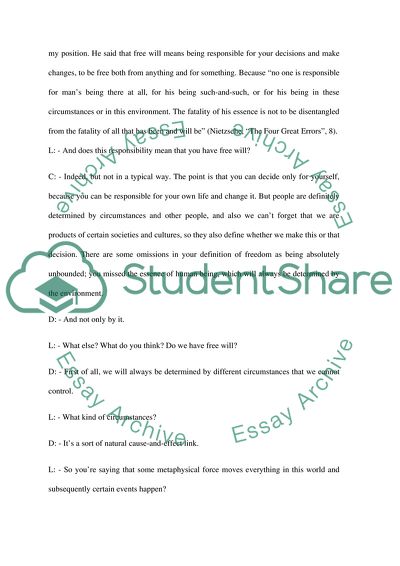Cite this document
(Socratic Dialogue Essay Example | Topics and Well Written Essays - 2000 words, n.d.)
Socratic Dialogue Essay Example | Topics and Well Written Essays - 2000 words. https://studentshare.org/philosophy/1831444-socratic-dialogue
Socratic Dialogue Essay Example | Topics and Well Written Essays - 2000 words. https://studentshare.org/philosophy/1831444-socratic-dialogue
(Socratic Dialogue Essay Example | Topics and Well Written Essays - 2000 Words)
Socratic Dialogue Essay Example | Topics and Well Written Essays - 2000 Words. https://studentshare.org/philosophy/1831444-socratic-dialogue.
Socratic Dialogue Essay Example | Topics and Well Written Essays - 2000 Words. https://studentshare.org/philosophy/1831444-socratic-dialogue.
“Socratic Dialogue Essay Example | Topics and Well Written Essays - 2000 Words”. https://studentshare.org/philosophy/1831444-socratic-dialogue.


